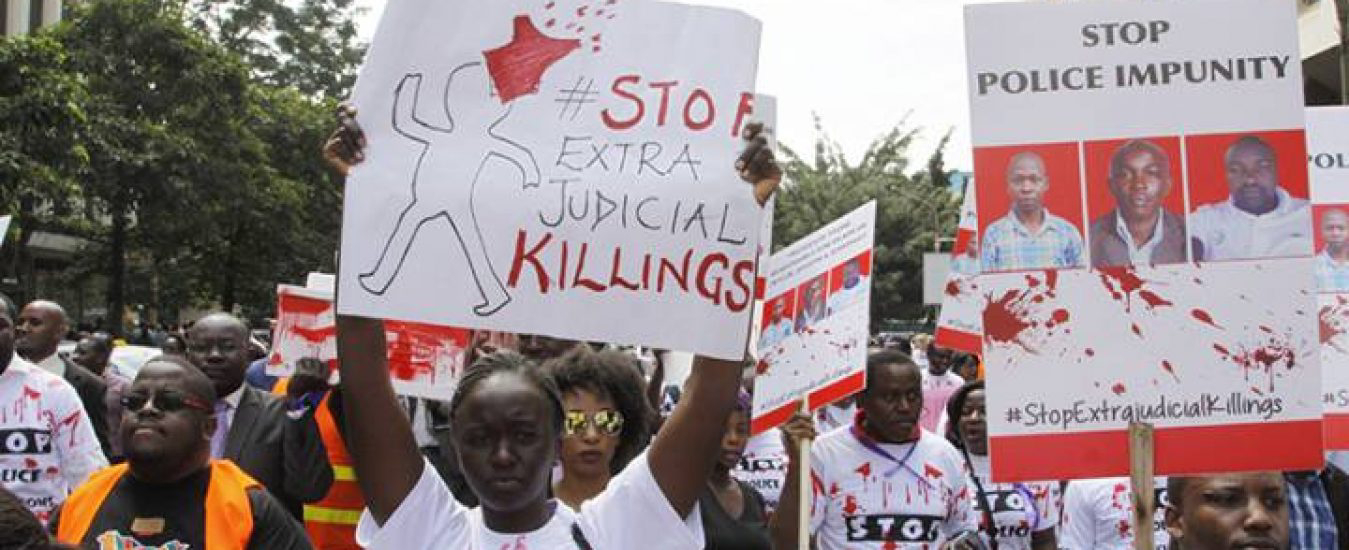In the labyrinth of a sprawling metropolis, where the skyline glitters with the promise of prosperity but the alleys echo with whispers of corruption, a story unfolds. It's a tale of power, revenge, and betrayal, where the lines between right and wrong blur beneath the weight of authority.
Extrajudicial killings is a result of failed justice system and police failure in enforcing law and order.|COURTESY
At the heart of this urban maze stands a figure, shrouded in the cloak of their own influence. They move with purpose, their every step a silent declaration of dominance over the city and its inhabitants. Yet, beneath the facade of authority lies a soul burdened by a betrayal that festers like a wound, driving them to seek solace in the shadows where morality fades to gray.
The city pulses with life, its streets teeming with the hustle and bustle of daily existence. But beneath the surface lies a dark underbelly, where power is the ultimate currency and secrets are traded like commodities. In this world of shadows and secrets, blackmail becomes a weapon of choice, wielded by those who seek to maintain their grip on power at any cost.
Enter a seeker of truth, a lone voice in the darkness, determined to uncover the secrets that lie buried beneath the city's glossy facade. Armed with nothing but determination and a relentless pursuit of justice, they navigate the treacherous waters of corruption, unaware of the danger that lurks around every corner.
As they delve deeper into the murky depths of the city's underbelly, they soon find themselves ensnared in a web of deceit and manipulation. For in a city where power is absolute, those who wield it will stop at nothing to protect their secrets and maintain their hold on authority.
But as the pieces of the puzzle begin to fall into place, a specter from the past emerges, wielding justice like a sword forged in the fires of betrayal. With each revelation, the grip of those in power weakens, their carefully constructed facade crumbling beneath the weight of their own deception.
In the end, amidst the ruins of ambition, the mighty fall, their downfall a testament to the fragility of power and the inevitability of retribution. And as the dust settles, a somber truth emerges: in a world where justice is a commodity and power is the ultimate prize, extrajudicial killings continue to exist because they are a symptom of a deeper rot—a rot that infects the very heart of society and threatens to consume it whole.
But why do extrajudicial killings persist despite the efforts of law enforcement and advocates for human rights? The answer lies in the complex interplay of political, social, and economic factors that create an environment ripe for abuse of power and impunity.
Firstly, extrajudicial killings often occur in regions plagued by political instability, where weak governance and a lack of accountability create fertile ground for human rights abuses. In these environments, law enforcement agencies may operate with impunity, emboldened by a culture of impunity that allows them to act outside the bounds of the law.
Secondly, extrajudicial killings are often driven by a desire to maintain power and control over marginalized communities. In many cases, victims are targeted because of their perceived association with criminal or opposition groups, or simply because they are deemed to be a threat to the status quo. By eliminating these individuals, those in power seek to send a chilling message to others who might dare to challenge their authority.
Thirdly, extrajudicial killings are often fueled by economic incentives, particularly in regions where organized crime and drug trafficking are prevalent. In these cases, law enforcement officials may collude with criminal elements to carry out targeted killings in exchange for financial gain or other benefits. This collusion further erodes trust in the justice system and perpetuates a cycle of violence and impunity.
In conclusion, extrajudicial killings persist because they are symptoms of deeper structural issues within society, including political instability, social inequality, and economic exploitation. Addressing these root causes will require a concerted effort to strengthen governance, promote accountability, and protect the rights of marginalized communities. Only then can we hope to eradicate the scourge of extrajudicial killings and build a more just and equitable society for all.
OPINION BY CLINTON OBIERO GISORE, A STUDENT PURSUING JOURNALISM AND MASS COMMUNICATION AT CHUKA UNIVERSITY
SIDEBAR
International human rights lobbies reported on July 2, 2019 that more than 21 men and boys were killed by police in Nairobi City's low income neighbourhoods of Dandora and Mathare. The report was authored by the Human Rights Watch and its partners.
In 2023, police killed 118 people by extrajudicial killings. This was a drop from 2022 which saw 130 people killed by those who are supposed to protect them, the Voice Of America reported quoting a report coauthored by Amnesty International and Human Rights Watch and others.
Investigations against police killings are rare unless there is public outrage, a media spurt or the victims under probe are well known or well connected, public opinion goes.
Even where there is ample evidence, alleged killer cops are rarely brought to book.
All perpetrators of extrajudicial killings should be brought to book if the crime is to be fully addressed. Redeploying of the police officers in question is not a solution to extrajudicial killings and enforced disappearances.
-MWINGI TIMES CORRESPONDENT











 MWINGI TIMES for timely and authoritative news.
MWINGI TIMES for timely and authoritative news.
No comments
Post a Comment